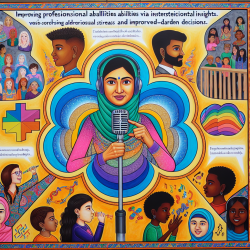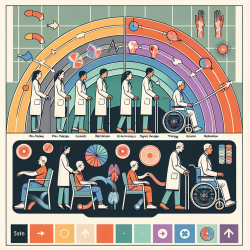In the face of the COVID-19 pandemic, educators faced unprecedented challenges, but none more so than Black children who experienced racial microaggressions in their early educational settings. The research article, "Treat Them Like Human Beings": Black Children’s Experiences with Racial Microaggressions in Early Childhood Education During COVID-19, provides crucial insights into these experiences. This blog will explore how educators can improve their practices by understanding and addressing these microaggressions.
Understanding Racial Microaggressions
Racial microaggressions are subtle, often unintentional, discriminatory comments or behaviors directed at marginalized groups. In the context of early childhood education, these microaggressions can significantly impact Black children’s self-esteem, engagement, and academic success.
Key Findings from the Research
The study highlighted three main areas where Black children were affected:
- Being Treated as an Ancillary Distraction: Black children were often overlooked or ignored by educators, receiving less attention and engagement compared to their White peers.
- Differential Treatment Due to Race: Parents and children themselves identified that the differential treatment was racially motivated, with Black children feeling less valued.
- Impact of Differential Treatment: This second-class treatment led to feelings of invisibility, lowered self-worth, and disengagement from learning activities.
Actionable Steps for Educators
To address these issues, educators can take several steps:
- Educate Themselves on Implicit Bias: Understanding how unconscious biases affect interactions with students is crucial. Training sessions and workshops can help educators recognize and mitigate these biases.
- Foster Inclusive Classrooms: Create an environment where all students feel valued. This includes calling on Black students, praising their contributions, and ensuring they are equally engaged in classroom activities.
- Build Strong Relationships: Engage with Black students and their families to understand their unique experiences and needs. Building trust and showing genuine interest can significantly improve student outcomes.
- Implement Culturally Relevant Teaching Practices: Incorporate materials and activities that reflect the diverse backgrounds of students. This helps all students see themselves represented in their learning environment.
Encouraging Further Research
While this study provides valuable insights, further research is needed to develop more comprehensive strategies for addressing racial microaggressions in early childhood education. Educators are encouraged to stay informed about new findings and continually adapt their practices to support all students effectively.
Conclusion
Addressing racial microaggressions in early childhood education is essential for fostering an inclusive and supportive learning environment. By understanding the experiences of Black children and implementing strategies to mitigate these issues, educators can ensure that all students are treated with the respect and dignity they deserve.
To read the original research paper, please follow this link: “Treat Them Like Human Beings”: Black Children’s Experiences with Racial Microaggressions in Early Childhood Education During COVID-19.










